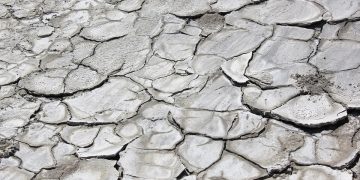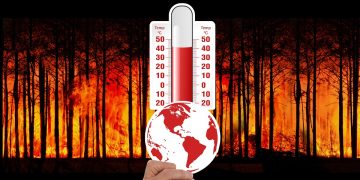The Human Toll of Climate Change: How Global Warming is Impacting Our Health and Well-being
Climate change is no longer a distant threat looming in the future – it is a reality that is already impacting our lives in profound ways. One of the most significant ways in which climate change is affecting us is through its impact on our health and well-being. From extreme weather events to the spread of infectious diseases, the human toll of climate change is becoming increasingly evident.
Extreme Weather Events
One of the most visible effects of climate change is the increase in frequency and intensity of extreme weather events such as hurricanes, heatwaves, and wildfires. These events not only cause immediate physical harm and destruction, but they also have long-lasting effects on our health and well-being. For example, heatwaves can lead to heat exhaustion and heat stroke, while wildfires can result in respiratory problems due to air pollution.
Impact on Mental Health
In addition to physical health impacts, climate change is also taking a toll on our mental health. The stress and anxiety caused by the uncertainty of extreme weather events, the loss of homes and livelihoods, and the displacement of communities can have long-lasting effects on our mental well-being. Studies have shown that rates of anxiety, depression, and post-traumatic stress disorder are on the rise in communities that have been affected by climate change-related disasters.
Spread of Infectious Diseases
Climate change is also contributing to the spread of infectious diseases such as malaria, dengue fever, and Zika virus. Warmer temperatures and changing weather patterns create ideal conditions for the breeding and spread of disease-carrying mosquitoes and other vectors. As a result, diseases that were once confined to tropical regions are now spreading to new areas, putting more people at risk of infection.
Food Insecurity
Another way in which climate change is impacting our health and well-being is through its effects on food security. Changes in temperature and precipitation patterns are affecting crop yields and food production, leading to food shortages and price spikes. This not only puts vulnerable populations at risk of malnutrition and hunger, but it also contributes to social unrest and conflict as competition for scarce resources intensifies.
Protecting Our Health
While the impacts of climate change on our health and well-being are undeniable, there are steps that can be taken to mitigate these effects and protect ourselves. Investing in resilient infrastructure, building early warning systems for extreme weather events, and implementing policies to reduce greenhouse gas emissions are all important measures that can help to safeguard our health in the face of a changing climate.
Conclusion
Climate change is not just an environmental issue – it is a public health crisis that is already affecting our lives in profound ways. From extreme weather events to the spread of infectious diseases, the human toll of climate change is becoming increasingly evident. By taking action to reduce our carbon footprint and build resilience in our communities, we can protect our health and well-being in the face of a changing climate.
It is essential that we prioritize the health and well-being of all individuals and communities, especially those who are most vulnerable to the impacts of climate change. By working together to address this crisis, we can create a healthier and more sustainable future for ourselves and future generations.





